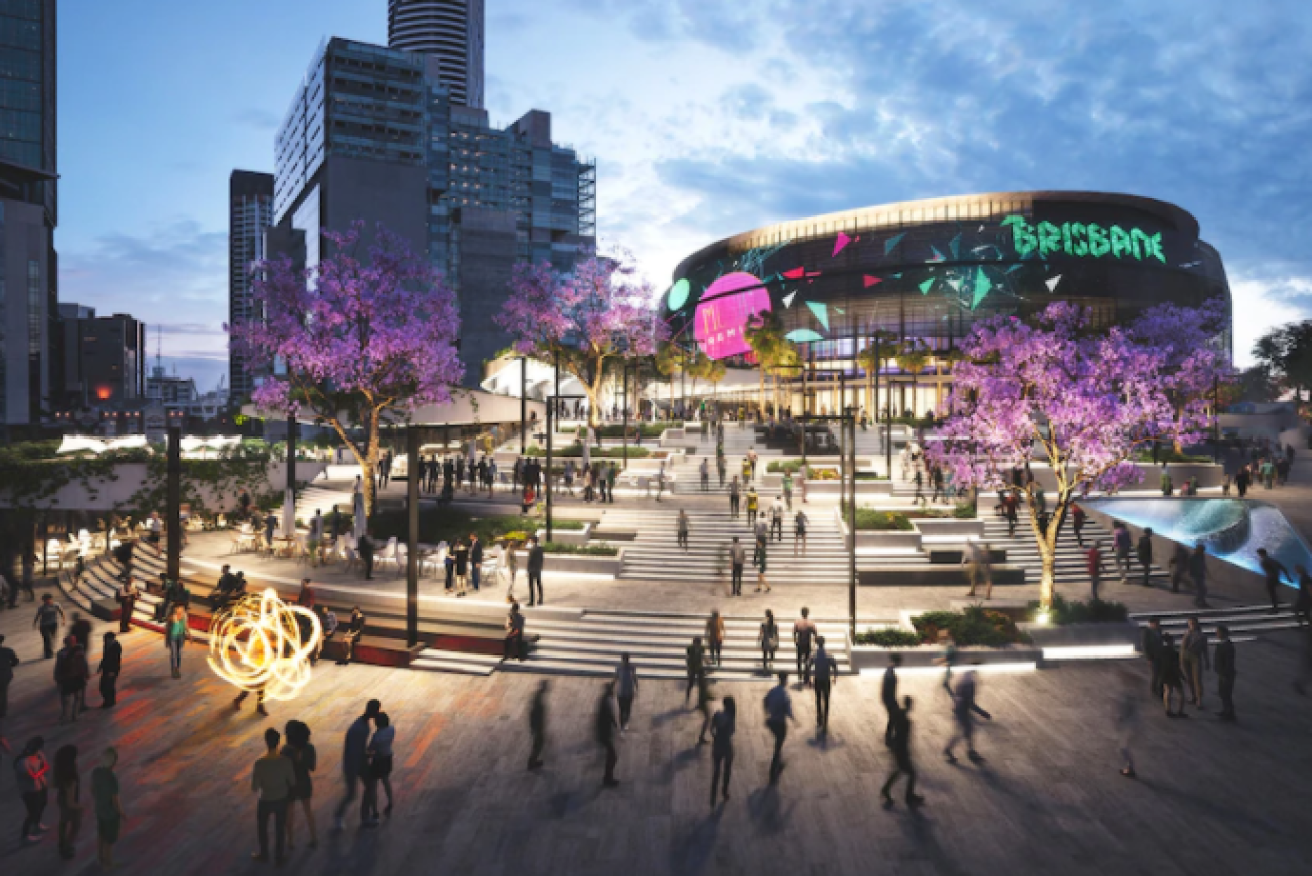The five vital steps standing between Queensland and a flourishing future
Brisbane’s path to the 2032 Olympics has already been mapped out, but long-lasting benefits will only flow if we don’t miss our targets, write Pradeep Philip and Judith Donovan.

The planned Brisbane Live site, part of the Roma Street redevelopment, will be a key investment for the Brisbane Olympics - but most facilities are already built. (Photo; ABC)
Queensland has borne its fair share of disruption and change. We’ve been hit by floods, droughts, a pandemic, and rushed headlong into a fast-changing world shaped by the pressures of climate change and a continually digitising economy. It’s almost enough to make you want to slink back under the doona and binge Netflix.
But as attractive as the idea of a retreat may seem, it would be the wrong move. The forces currently shaping the future can be harnessed to create a strong and prosperous Future Queensland.
Deloitte Access Economics has recently modelled a net-zero economic pathway where Queensland’s future growth is driven by economic investments that leverage our state’s traditional strengths and take hold of global opportunities. If we play our cards right then by 2050 our state economy could be $70bn larger than we expect, providing an additional 120,000 jobs to Queenslanders.
How do we make this happen? By getting the settings right for five parts of Queensland’s economy.
The first is infrastructure – we can’t sit around and wait for Future Queensland to build itself. The good news is, that with a record 5-year infrastructure pipeline of $71.3bn and an Olympics around the corner, we’re off to a great start.
What we need to change is the way we think about future projects. The appeal of “shovel ready” projects is obvious, but we need to prioritise infrastructure that generates the most productivity across the economy and open new industries.
One way to identify what projects will be most beneficial is to invest in cutting-edge technologies like AI or digital twin models, which can create real-time virtual simulation of a piece of infrastructure. We’ve currently earmarked $1.5bn for investment in digitising these aspects of infrastructure planning. We need to invest much more.
The second part of the economy requiring focus is skills. Every business will tell you about their experience of the skills crisis, and this will remain a structural issue unless we make our education and training system flexible enough to respond to skills shortages, including by offering micro-credentials for those in the workforce. Lifelong learning is simply a necessary part of being a skilled worker in the modern economy.
We can reasonably predict, for example, that the imminent decarbonisation and electrification of our biggest industries (like mining) will create a surge in demand for engineers, scientists, and technicians with niche and discreet skills. To ensure we’ve got people who can do the work, we need to think of ambitious solutions like supercharging our apprentice programs so that they apply to white-collar industries and are attractive to older workers who might want to reskill.
On that track, the third part of the economy we must get right is power. Our ambitious state policy is to increase renewables’ share of the energy mix from around 20 per cent now to 70 per cent in a decade. This requires ongoing large-scale investment in renewable energy policies and execution of our climate goals, which will create thousands of jobs for Queenslanders.
As well as benefiting from our own transition, we must benefit from others. Queensland’s nascent critical minerals sector, if developed, will be critical in supplying the raw materials needed for other countries to decarbonise. Meanwhile, the next generation of alternative fuel sources like biofuels and hydrogen (of which Queensland is in the box seat) will play a key role in electrifying power-intensive industries.
The last two parts of the economy we must get right are health and sharing the wealth. With our population growth being the strongest in Australia, we need to ensure our health system can keep up.
This will require creating digital health hubs so Queenslanders can connect to the GPs and specialists they need in their homes. In 10 years, half of the care provided should be available digitally but with a workforce that is more flexible, skilled, and innovative. A mobile health service needs to be strengthened for those who can’t be served digitally.
It’s important that our regional and remote communities, and marginalised groups in our communities, are not overlooked when it comes to benefitting from our economic success. Queensland is more than just its South-East Corner. This means continually upping investment in education, health and housing and working to improve workforce participation.
If we play our cards right, the unparalleled Queensland lifestyle will only get better and better.
Pradeep Philip is Lead Partner, Deloitte Access Economics. Judith Donovan is Deloitte Queensland’s Managing Partner.












